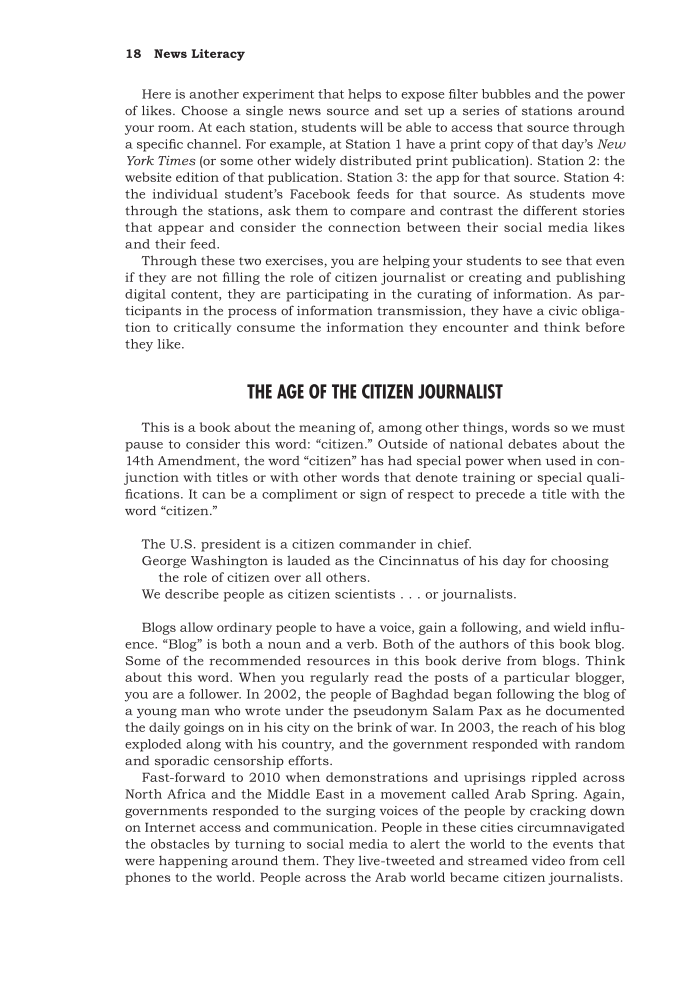18 News Literacy Here is another experiment that helps to expose filter bubbles and the power of likes. Choose a single news source and set up a series of stations around your room. At each station, students will be able to access that source through a specific channel. For example, at Station 1 have a print copy of that day’s New York Times (or some other widely distributed print publication). Station 2: the website edition of that publication. Station 3: the app for that source. Station 4: the individual student’s Facebook feeds for that source. As students move through the stations, ask them to compare and contrast the different stories that appear and consider the connection between their social media likes and their feed. Through these two exercises, you are helping your students to see that even if they are not filling the role of citizen journalist or creating and publishing digital content, they are participating in the curating of information. As par- ticipants in the process of information transmission, they have a civic obliga- tion to critically consume the information they encounter and think before they like. THE AGE OF THE CITIZEN JOURNALIST This is a book about the meaning of, among other things, words so we must pause to consider this word: “citizen.” Outside of national debates about the 14th Amendment, the word “citizen” has had special power when used in con- junction with titles or with other words that denote training or special quali- fications. It can be a compliment or sign of respect to precede a title with the word “citizen.” The U.S. president is a citizen commander in chief. George Washington is lauded as the Cincinnatus of his day for choosing the role of citizen over all others. We describe people as citizen scientists . . . or journalists. Blogs allow ordinary people to have a voice, gain a following, and wield influ- ence. “Blog” is both a noun and a verb. Both of the authors of this book blog. Some of the recommended resources in this book derive from blogs. Think about this word. When you regularly read the posts of a particular blogger, you are a follower. In 2002, the people of Baghdad began following the blog of a young man who wrote under the pseudonym Salam Pax as he documented the daily goings on in his city on the brink of war. In 2003, the reach of his blog exploded along with his country, and the government responded with random and sporadic censorship efforts. Fast-forward to 2010 when demonstrations and uprisings rippled across North Africa and the Middle East in a movement called Arab Spring. Again, governments responded to the surging voices of the people by cracking down on Internet access and communication. People in these cities circumnavigated the obstacles by turning to social media to alert the world to the events that were happening around them. They live-tweeted and streamed video from cell phones to the world. People across the Arab world became citizen journalists.
Document Details My Account Print multiple pages
Print
You have printed 0 times in the last 24 hours.
Your print count will reset on at .
You may print 0 more time(s) before then.
You may print a maximum of 0 pages at a time.























































































































































































